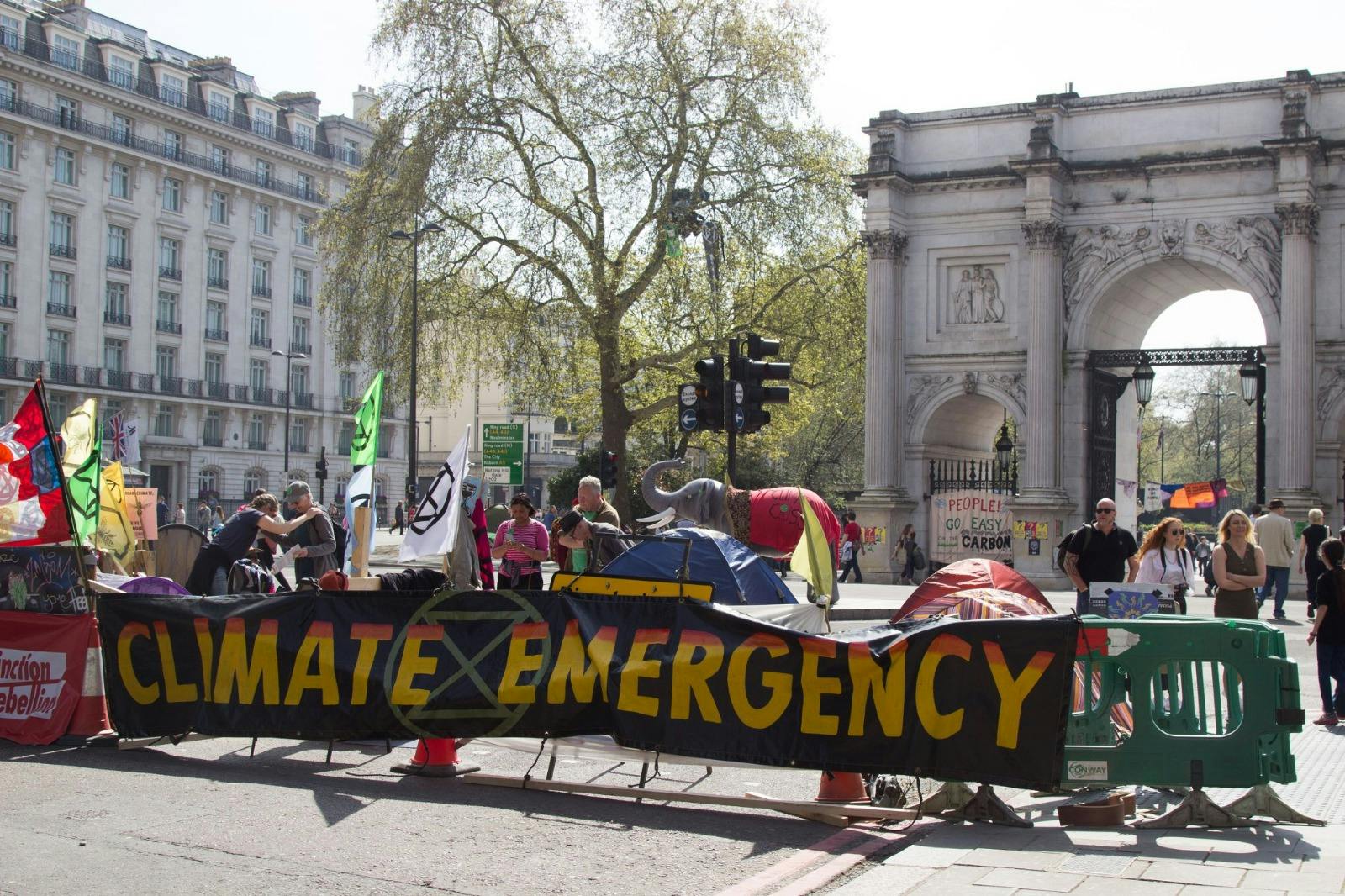For over three decades, activists have been calling for action on climate and environmental breakdown through conventional means. We have marched in demonstrations, written letters to our MPs, signed petitions, even carried out direct action against the organisations actively contributing to the crisis and targeting infrastructure such as power stations and oil rigs. Many people have sought to make a difference through individual changes, reducing their environmental impact through their transport choices, by insulating their homes and recycling.
Despite this, we are on a cliff-edge. David Attenborough says “If we don’t take action, the collapse of our civilisations and the extinction of much of the natural world is on the horizon.” Greta Thunberg says “the science doesn’t mainly speak of great opportunities to create the society we always wanted. It tells of unspoken human sufferings, which will get worse and worse the longer we delay action – unless we start to act now”.

While the environmental movement has done incredible, vital work over the past decades, Extinction Rebellion (XR) recognises that this is not enough to stop environmental catastrophe. Only government action to change the system we live in can save us – and new tactics are needed to force the government to sit up and listen. Polluters barely notice a power-station shut down, big infrastructure projects continue in spite of protesters physically impeding construction work, and the work of activists barely registers on the public consciousness.

Public disruption is impossible to ignore. Those caught up in it experience it and feel it. The initial response is often anger towards the protestors. Others see it in headlines and on social media. This is evident from the regular “swarming” roadblocks XR activists in Cambridge have been carrying out over the last few weeks. On 5th February, articles covering XR occupied the top two most-read slots on the Cambridge Independent website (see right). Note that the second story is in regard to a planned week-long roadblock. We have also had a flurry of media requests from the likes of Cambridge News, Cambridge Independent, BBC Radio Cambridge.

Similarly, after some recent swarming actions we have seen a large increase in website traffic (see below). On Wednesday 22nd January, we received 2,251 site visits; by contrast, our highest number of daily visits in December 2019 was 52. Since we stepped up our disruptive action in Cambridge, our site visits frequently hit the mid-hundreds, usually coinciding with our actions. Here in Cambridge, this provides a platform for our more targeted disruption at institutions such as oil and gas company Schlumberger and allows us to expose the university’s and local institutions’ contribution to the climate emergency.
